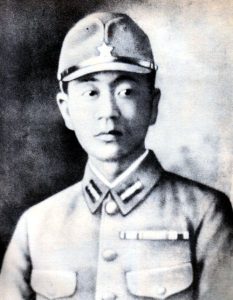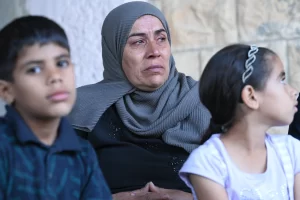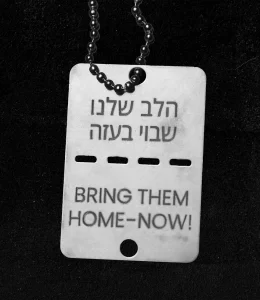The end of World War 2 came at a significant human cost. Eisenhower continued to bomb cities in Germany so that the Germans knew with certainty they had lost. Not one, but two atomic bombs were dropped on Japanese cities, unleashing their death and destruction. And yet many did not put down their arms. 5,000 Japanese soldiers refused to surrender at the war’s conclusion, remaining loyal to their oath to the Emperor, the deeply ingrained values of Bushido, emphasis on honor, and self-sacrifice at their core.

The most famous among them was Shoichi Yokoi, who returned to Japan from Guam in 1972, 27 years after the war’s end. He is quoted as saying, “It is with much embarrassment that I return.” (Smithsonian Magazine; https://www.smithsonianmag.com/history/the-japanese-wwii-soldier-who-refused-to-surrender-for-27-years-180979431/)
There may be invaluable lessons from the Japanese fighters who held out even after the war ended when dealing with Hamas.
To understand the fighters loyal to Hamas, we must understand the profound philosophical, existential commitment to the idea of fighting to regain the land perceived as stolen. Leaders with bona fides that these Hamas fighters will respect must arise and offer a different path forward. This can initiate a process where, eventually, those committed to Israel’s obliteration will be overcome by those committed to a peace wherein both sides live in safety and security, side by side.
 The sheer brutality of the current war in Gaza would, under normal circumstances, make any leader want to stop the suffering of the people and compromise in the name of peace. However, Hamas is not normal circumstances. The human suffering they use in the service of their ideology is perfectly acceptable to them and is, in point of fact, one of the weapons they have employed in dealing with the Palestinians and the hostages.
The sheer brutality of the current war in Gaza would, under normal circumstances, make any leader want to stop the suffering of the people and compromise in the name of peace. However, Hamas is not normal circumstances. The human suffering they use in the service of their ideology is perfectly acceptable to them and is, in point of fact, one of the weapons they have employed in dealing with the Palestinians and the hostages.
Similarly, the hatred on the Israeli side of the equation is equally brutal. The invasion of October 7 was viscerally felt as an existential moment. Hatred and the desire for revenge only build with the cynical bargaining chip that is the hostages. As those lives hang in the balance, Israelis must also find courageous leaders to lead their people to peace.
One of the few things made clear is the current situation is a meat grinder consuming human victims with impunity. This is morally and ethically reprehensible. Moderating voices must arise to quell this war machine and find a better path forward.
There will be those who see victory only as the destruction and capitulation of the enemy. It is an unrealistic goal. The price is astronomically high in lives lost and is ultimately unachievable. These ideologues and zealots must be marginalized. It may take generations for this view of the world to fade away, and only with perseverance and strength can we support those seeking a way forward that can permit a peaceful coexistence to form.


